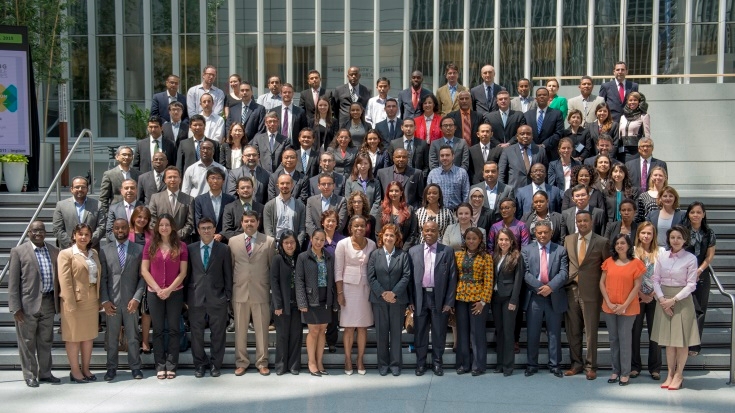Policy makers around the world continue to balance the demand for stringent oversight of the financial industry with the need for a well-developed sector that supports productive firms and broad-based financial inclusion. Nearly a decade since the start of the global financial crisis, stakeholders are asking: How can governments enable dynamic financial sectors that contribute to stable economies and sustainable growth?
From May 4th-8th, the Research Department and the Finance and Markets Global Practice hosted the 12th Overview Course of Financial Sector Issues 2015: Building Financial Sectors that Support Development. This week-long training event covers the fundamentals of the financial sector and identifies emerging issues relevant to policy makers. Officials from central banks, ministries of finance, and regulatory agencies as well as World Bank Group staff members were in attendance.
Every year, the World Bank organizes this workshop to bring together academics, policy makers, and development practitioners. Notable speakers this year included Viral Acharya (New York University), Thorsten Beck (Cass Business School and Tilburg University), and Simon Johnson (MIT).
Setting the stage for the week, Simon Johnson (MIT) gave an overview of the evolving role of banks and bank supervision in the US, starting from its early stages in the 19th century through the deregulation of the 1970s and the recent regulatory response to the financial crisis of 2008 – 2009. Johnson described current measures to increase leverage ratios as “small progress at the heart of the world’s financial system,” and called for bank regulators to focus on straightforward capital adequacy requirements as a robust and hard-to-game mechanism to ensure a stable banking sector.
Turning to an issue that is on the minds of many developing country policy makers, Director of Research Asli Demirguc-Kunt discussed long-term finance and its role in supporting economic development. Demirguc-Kunt identified the presence of an active long-term finance market in a developing country as a mark of regulatory strength and an economy in which investors have confidence. “When we see a high level of short-term finance, we worry that providers are concerned about macroeconomic stability and borrower risk,” she said. She urged policy makers to focus on promoting macroeconomic stability and to strengthen regulatory and institutional frameworks rather than supplying government guarantees to avoid crowding out private sector engagement.

